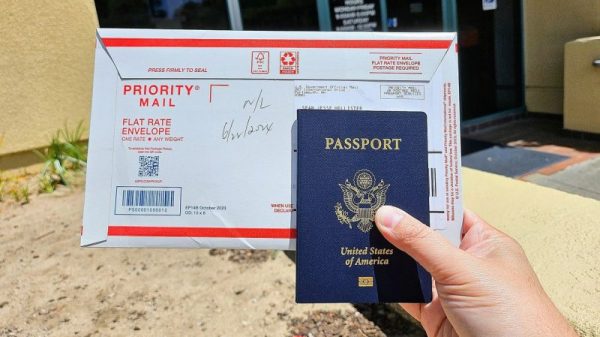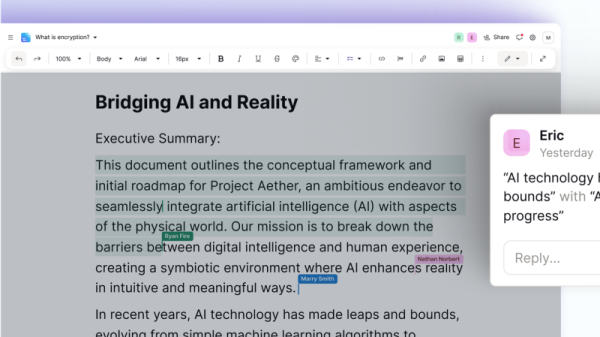The House of Representatives on Thursday referred a long-shot effort to impeach President Biden to a pair of committees, part of a deal made by House Speaker Kevin McCarthy (R-Calif.) to appease hard-right Republicans within his ranks and avoid a potentially embarrassing split vote among members of the party. The vote to refer passed 219-208, with four Democrats and three Republicans not voting.
Instead of bringing the resolution to the House floor, where it was not expected to pass, it will be sent for review to the House Judiciary and Homeland Security committees.
The articles of impeachment resolution, introduced by Rep. Lauren Boebert (R-Colo.), cited a “dereliction of duty” and “abuse of power” over Biden’s handling of the U.S.-Mexico border. By introducing the measure as a privileged resolution, Boebert bypassed the traditional legislative process and fast-tracked the bill directly to the House floor. The action also forced lawmakers to vote on the measure within two days.
“Since his first day in office, President Biden has trampled on the Constitution through his dereliction of duty,” Boebert said as the House floor debated the motion Thursday. “Every member should vote to hold President Joe Biden accountable.”
The top Democrat on the Homeland Security Committee, Rep. Bennie G. Thompson (Miss.), said that Boebert’s impeachment attempt “has nothing to do with border security,” calling it yet another attempt by Republicans “to distract from the legal peril facing their twice-impeached, twice-indicted party leader.”
Homeland Security Committee Chairman Rep. Mark Green (R-Tenn.) told reporters ahead of Thursday’s vote, “We will dig deeply into it. I take very seriously our oversight responsibility and we’re going to hold people accountable.”
Green is also leading the charge by Republicans to investigate Homeland Security Secretary Alejandro Mayorkas over what the congressman has said is a dereliction of duty at the border.
House Judiciary Committee Chairman Rep. Jim Jordan (R-Ohio) suggested Thursday that the “primary jurisdiction” for the Biden impeachment resolution will be in the Homeland Security committee.
Boebert’s move was a surprise to leadership and the rest of the conference when she formally introduced her privileged resolution Tuesday evening. Fast-tracking an impeachment vote, and skipping over ongoing GOP-led investigations into the Biden administration, irritated a majority of Republicans, who feel that far-right lawmakers have abused legislative mechanisms that undermine the regular order of governing. Every Republican who spoke to defend Boebert’s resolution on the floor Thursday was a member of the conference’s far-right flank.
Given that a significant number of Republicans would have joined with Democrats to sink it, GOP leadership tried to convince Boebert to pull the resolution. Instead, they reached an agreement to change Boebert’s resolution so it is sent directly to the Homeland and Judiciary committees to consider, which many in the conference believe is the appropriate course of action for considering an impeachment.
McCarthy and Republican leadership have argued that their party needs to build a more concrete case against Biden and pointed out that Boebert’s resolution would be dead on arrival in the Democratic-controlled Senate, according to two lawmakers familiar with the discussions who spoke on the condition of anonymity to detail internal conversations. McCarthy also said ongoing investigations into the Biden administration are doing good work, and if it uncovers anything that rises to impeachment level, he would be the first to sign on.
During a House Rules Committee hearing Wednesday night, committee chairman Tom Cole (R-Okla.) said that “many members on both sides of the aisle have differing opinions on Miss Boebert’s resolution, which is of course their right.”
“At the same time, Speaker McCarthy and House Republicans are committed to fulfilling regular order and undertaking investigations prior to taking up the serious constitutional duty of impeachment,” he added.
The Rules Committee’s leading Democrat, Rep. Jim McGovern (Mass.), called the impeachment resolution “absurd” and an attempt by Republicans to distract from former president Donald Trump’s many alleged misdeeds.
The rift over the resolution highlights McCarthy’s delicate dance to appease a small faction of hard-right Republicans within his ranks. The speaker has emphasized his party’s need to remain united to maintain their slim majority. But hard-right members — frustrated in particular that McCarthy didn’t meet their demands during debt ceiling negotiations — have sought to circumvent usual legislative processes to advance their agenda.
Boebert is the second lawmaker from the staunchly conservative House Freedom Caucus to introduce a privileged resolution this week, a sign that the small group of far-right Republicans is becoming more emboldened. The House on a party-line vote Wednesday supported a privileged resolution introduced by Rep. Anna Paulina Luna (R-Fla.) to censure Rep. Adam B. Schiff (D-Calif.).
The House of Representatives on Thursday referred a long-shot effort to impeach President Biden to a pair of committees, part of a deal made by House Speaker Kevin McCarthy (R-Calif.) to appease hard-right Republicans within his ranks and avoid a potentially embarrassing split vote among members of the party. The vote to refer passed 219-208, with four Democrats and three Republicans not voting.
Instead of bringing the resolution to the House floor, where it was not expected to pass, it will be sent for review to the House Judiciary and Homeland Security committees.
The articles of impeachment resolution, introduced by Rep. Lauren Boebert (R-Colo.), cited a “dereliction of duty” and “abuse of power” over Biden’s handling of the U.S.-Mexico border. By introducing the measure as a privileged resolution, Boebert bypassed the traditional legislative process and fast-tracked the bill directly to the House floor. The action also forced lawmakers to vote on the measure within two days.
“Since his first day in office, President Biden has trampled on the Constitution through his dereliction of duty,” Boebert said as the House floor debated the motion Thursday. “Every member should vote to hold President Joe Biden accountable.”
The top Democrat on the Homeland Security Committee, Rep. Bennie G. Thompson (Miss.), said that Boebert’s impeachment attempt “has nothing to do with border security,” calling it yet another attempt by Republicans “to distract from the legal peril facing their twice-impeached, twice-indicted party leader.”
Homeland Security Committee Chairman Rep. Mark Green (R-Tenn.) told reporters ahead of Thursday’s vote, “We will dig deeply into it. I take very seriously our oversight responsibility and we’re going to hold people accountable.”
Green is also leading the charge by Republicans to investigate Homeland Security Secretary Alejandro Mayorkas over what the congressman has said is a dereliction of duty at the border.
House Judiciary Committee Chairman Rep. Jim Jordan (R-Ohio) suggested Thursday that the “primary jurisdiction” for the Biden impeachment resolution will be in the Homeland Security committee.
Boebert’s move was a surprise to leadership and the rest of the conference when she formally introduced her privileged resolution Tuesday evening. Fast-tracking an impeachment vote, and skipping over ongoing GOP-led investigations into the Biden administration, irritated a majority of Republicans, who feel that far-right lawmakers have abused legislative mechanisms that undermine the regular order of governing. Every Republican who spoke to defend Boebert’s resolution on the floor Thursday was a member of the conference’s far-right flank.
Given that a significant number of Republicans would have joined with Democrats to sink it, GOP leadership tried to convince Boebert to pull the resolution. Instead, they reached an agreement to change Boebert’s resolution so it is sent directly to the Homeland and Judiciary committees to consider, which many in the conference believe is the appropriate course of action for considering an impeachment.
McCarthy and Republican leadership have argued that their party needs to build a more concrete case against Biden and pointed out that Boebert’s resolution would be dead on arrival in the Democratic-controlled Senate, according to two lawmakers familiar with the discussions who spoke on the condition of anonymity to detail internal conversations. McCarthy also said ongoing investigations into the Biden administration are doing good work, and if it uncovers anything that rises to impeachment level, he would be the first to sign on.
During a House Rules Committee hearing Wednesday night, committee chairman Tom Cole (R-Okla.) said that “many members on both sides of the aisle have differing opinions on Miss Boebert’s resolution, which is of course their right.”
“At the same time, Speaker McCarthy and House Republicans are committed to fulfilling regular order and undertaking investigations prior to taking up the serious constitutional duty of impeachment,” he added.
The Rules Committee’s leading Democrat, Rep. Jim McGovern (Mass.), called the impeachment resolution “absurd” and an attempt by Republicans to distract from former president Donald Trump’s many alleged misdeeds.
The rift over the resolution highlights McCarthy’s delicate dance to appease a small faction of hard-right Republicans within his ranks. The speaker has emphasized his party’s need to remain united to maintain their slim majority. But hard-right members — frustrated in particular that McCarthy didn’t meet their demands during debt ceiling negotiations — have sought to circumvent usual legislative processes to advance their agenda.
Boebert is the second lawmaker from the staunchly conservative House Freedom Caucus to introduce a privileged resolution this week, a sign that the small group of far-right Republicans is becoming more emboldened. The House on a party-line vote Wednesday supported a privileged resolution introduced by Rep. Anna Paulina Luna (R-Fla.) to censure Rep. Adam B. Schiff (D-Calif.).























